The Maldives, a tropical paradise in the Indian Ocean, is renowned for its pristine white-sand beaches, crystal-clear turquoise waters, and vibrant coral reefs. Comprising over 1,000 coral islands grouped into 26 atolls, the Maldives offers travelers a serene retreat surrounded by natural beauty. Whether you’re indulging in luxury accommodations over the water, snorkeling among colorful marine life, or simply relaxing on secluded beaches, the Maldives promises an unforgettable escape.
Ultimate Maldives Travel Guide
Destinations
Best time to go
The best time to visit the Maldives is during the dry season, which typically extends from November to April. During this time, the weather is sunny and dry, with calm seas and ideal conditions for diving, snorkeling, and other water-based activities. The wet season, from May to October, brings occasional rainfall and higher humidity, but it also offers lower prices and fewer tourists.
Average Temperature By Month
January: 28°C (82°F)
February: 28°C (82°F)
March: 29°C (84°F)
April: 30°C (86°F)
May: 30°C (86°F)
June: 29°C (84°F)
July: 29°C (84°F)
August: 29°C (84°F)
September: 29°C (84°F)
October: 29°C (84°F)
November: 29°C (84°F)
December: 28°C (82°F)
What To Expect
Time Zone:
The Maldives operates on Maldives Time (MVT), which is 5 hours ahead of Coordinated Universal Time (UTC+5).
Currency:
The official currency of the Maldives is the Maldivian Rufiyaa (MVR). However, US dollars (USD) are widely accepted, especially at resorts, hotels, and tourist establishments. Credit cards are also commonly used, but it's advisable to carry cash for smaller purchases and when visiting local islands.
Language:
Dhivehi is the official language of the Maldives, spoken by the majority of the population. English is also widely spoken and understood, particularly in tourist areas, resorts, and hotels.
Airport:
Velana International Airport (MLE), located on Hulhulé Island near the capital city of Malé, is the main gateway to the Maldives. The airport serves as a hub for international flights and domestic transfers to other islands and resorts.
How To Get Around
Speedboats: Speedboats are a common mode of transportation between the airport and resort islands, as well as between neighboring islands. Many resorts provide speedboat transfers for guests upon arrival and departure.
Seaplanes: Seaplane transfers offer a scenic way to travel between the airport and remote resort islands located in more distant atolls. Enjoy breathtaking aerial views of the turquoise lagoons and coral reefs during your journey.
Public Ferries: Public ferries operate between Malé and nearby local islands, providing an affordable option for exploring local culture and communities. Ferry schedules vary by route and may be less frequent on weekends and public holidays.
Private Yachts: Chartering a private yacht or boat allows for personalized island-hopping adventures, where you can explore hidden gems, deserted islands, and pristine dive sites at your own pace.
Average Temperature By Month:
January: 28°C (82°F)
February: 28°C (82°F)
March: 29°C (84°F)
April: 30°C (86°F)
May: 30°C (86°F)
June: 29°C (84°F)
July: 29°C (84°F)
August: 29°C (84°F)
September: 29°C (84°F)
October: 29°C (84°F)
November: 29°C (84°F)
December: 28°C (82°F)
Plugs:
The standard voltage in the Maldives is 230 volts AC, with a frequency of 50Hz. The most commonly used plug types are Type D (three round pins) and Type G (three rectangular pins). It's advisable to bring a universal adapter if your devices have different plug types.
VPN:
Access to certain websites and online services may be restricted in the Maldives. Consider using a virtual private network (VPN) to securely access the internet and bypass any censorship restrictions.
Safety:
The Maldives is a safe destination for travelers, with low crime rates and a welcoming local population. However, it's essential to take precautions to ensure your safety and well-being during your stay. Be mindful of your belongings, particularly in crowded areas and tourist spots, and avoid leaving valuables unattended. When swimming or snorkeling, heed local advice and be aware of currents and marine life. Additionally, stay informed about weather conditions and follow any instructions from resort staff or local authorities in case of emergencies.
Credit Cards and Banks
Credit Cards:
Credit card acceptance in the Maldives is widespread, especially in resorts, hotels, restaurants, and larger shops. Visa and MasterCard are the most commonly accepted cards, followed by American Express and UnionPay. Contactless payments, including Apple Pay and Google Pay, are also becoming increasingly common.
Debit Cards:
Debit cards are less commonly used in the Maldives compared to credit cards, but major international debit card networks like Visa and MasterCard are accepted at many establishments. However, it’s advisable to carry sufficient cash for transactions, especially when traveling to remote islands where card acceptance may be limited.
ATMs:
ATMs are available in Male, the capital city, and in some other populated islands and resorts in the Maldives. However, ATM availability may be limited on remote islands, so it’s advisable to withdraw sufficient cash in Male or at the airport upon arrival. Most ATMs dispense Maldivian Rufiyaa (MVR), the official currency of the Maldives.
Currency Exchange:
The official currency of the Maldives is the Maldivian Rufiyaa (MVR). It’s recommended to exchange your currency to Maldivian Rufiyaa upon arrival in the Maldives. You can exchange major foreign currencies at banks, currency exchange booths, and some hotels. US dollars and euros are widely accepted for exchange, especially at resorts.
Banks:
Major banks in the Maldives include:
- Bank of Maldives (BML): The largest bank in the Maldives, BML offers a wide range of banking services including savings accounts, loans, and foreign exchange.
- Maldives Islamic Bank: Another prominent bank in the Maldives, Maldives Islamic Bank provides various banking products and services compliant with Islamic finance principles.
Traveler’s Checks:
Traveler’s checks are becoming less common worldwide, and their usage is limited in the Maldives. It’s recommended to carry cash or use credit/debit cards for transactions. However, some banks may still offer services for cashing traveler’s checks, albeit with a fee.
Tips for Banking in the Maldives:
- Notify your bank before traveling to the Maldives to inform them of your travel plans and avoid any issues with card usage abroad.
- Keep your PIN and card information secure, and be cautious when using ATMs, especially in remote areas.
- Familiarize yourself with the current exchange rate to ensure fair transactions when exchanging currency.
- Carry small denominations of Maldivian Rufiyaa for smaller purchases, as change may be limited.
By understanding the banking system in the Maldives, you can ensure a smooth and hassle-free financial experience during your travels in the country.
Locations
Maldives
TRAVEL FACTS
US State Dept Travel Advisory
The US Department of State currently recommends US citizens exercise increased caution in Maldives due to terrorism. Consult its website via the link below for updates to travel advisories and statements on safety, security, local laws, and special circumstances in this country.
https://travel.state.gov/content/travel/en/traveladvisories/traveladvisories.html
Passport/Visa Requirements
For the latest passport and visa requirements for this country, please consult the U.S. State Department’s “Learn About Your Destination” search tool, available through the link below.
US Embassy/Consulate
US does not have an embassy in Maldives; US Ambassador to Sri Lanka and Maldives, is accredited to both countries; US citizens may call US Dept of State (202)-501-4444 for emergencies; alternate contact is the Embassy to Sri Lanka +94 (11) 249-8500; US Embassy Colombo, 210 Galle Road, Colombo 03, Sri Lanka; colomboacs@state.gov; https://lk.usembassy.gov/
LGBTQIA+ Travelers
Telephone Code
960
Local Emergency Phone
Ambulance: 102; Fire: 999; Police: 119
Vaccinations
The CDC and WHO recommend the following vaccinations for Maldives: hepatitis A, hepatitis B, typhoid, yellow fever, rabies, meningitis, polio, measles, mumps and rubella (MMR), Tdap (tetanus, diphtheria and pertussis), chickenpox, shingles, pneumonia, COVID-19, and influenza.
Climate
Tropical; hot, humid; dry, northeast monsoon (November to March); rainy, southwest monsoon (June to August)
Currency (Code)
Rufiyaa (MVR)
Electricity/Voltage/Plug Type(s)
230 V / 50 Hz / plug types(s): C, D, G, J, K, L
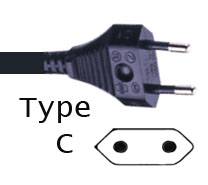
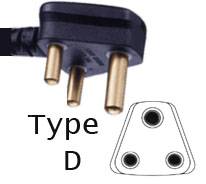
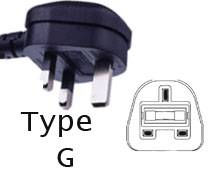
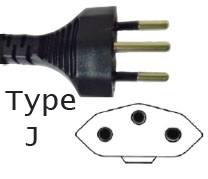

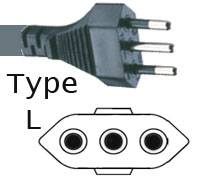
Major Languages
Dhivehi, English
Major Religions
Sunni Muslim
Time Difference
UTC+5 (10 hours ahead of Washington, DC, during Standard Time)
Potable Water
Opt for bottled water
International Driving Permit
Suggested
Road Driving Side
Left
Tourist Destinations
National Museum; Sultan Park; Tsunami Monument; Republic Square; Rasfannu; Male Waterfront; Friday Mosque; Muleeaage Palace
Major Sports
Soccer, tennis, baseball, badminton, basketball, table tennis
Cultural Practices
Maldivians are incredibly warm, welcoming and friendly people who will go above and beyond to make your holiday truly unforgettable.
Tipping Guidelines
If staying in a hotel for a few days or more and the staff has demonstrated good service, a gratuity of $2 (USD) per day is suggested. Tipping guides $10 (USD) per day is appropriate.
Souvenirs
Hand-woven wicker and reed mats, woven baskets, shell and stone jewelry, tree-sap-carved lacquered boxes and other carved wooden items
Traditional Cuisine
Garudiya — a clear fish (typically tuna) broth
Please visit the following links to find further information about your desired destination.
World Health Organization (WHO) – To learn what vaccines and health precautions to take while visiting your destination.
US State Dept Travel Information – Overall information about foreign travel for US citizens.
To obtain an international driving permit (IDP). Only two organizations in the US issue IDPs:
American Automobile Association (AAA) and American Automobile Touring Alliance (AATA)
How to get help in an emergency?
Contact the nearest US embassy or consulate, or call one of these numbers:
from the US or Canada – 1-888-407-4747 or from Overseas – +1 202-501-4444
Central Intelligence Agency.
The World Factbook.
/the-world-factbook
(May 8, 2024)



